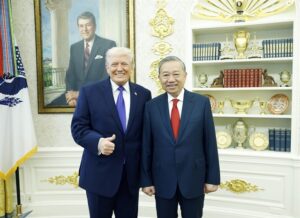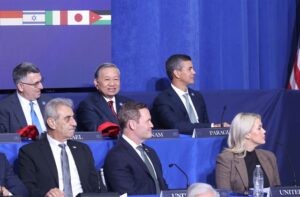PM Chính Calls for Institutional Reforms to Advance Science, Tech, and Digital Transformation

Hanoi, The Gulf Observer: Prime Minister Phạm Minh Chính has emphasized the urgent need to remove institutional obstacles to accelerate the development of science, technology, innovation, and national digital transformation in line with the spirit of the Politburo’s Resolution No. 57.
Speaking at a group discussion during the National Assembly’s 9th extraordinary session on Saturday morning, the Prime Minister highlighted the Government’s ongoing efforts to revise key legislative frameworks. These include amendments to the Law on State Budget, the Tax Law, the Enterprise Law, and the Law on Science and Technology. Some of these revised laws may be submitted for consideration at the National Assembly’s session in May this year.
To ensure the immediate implementation of Resolution No. 57-NQ/TW, which calls for significant advancements in science, technology, innovation, and digital transformation, the Government has submitted a draft resolution aimed at piloting policies to eliminate obstacles in these critical fields.
The Prime Minister stressed the importance of studying and implementing special mechanisms to mobilize resources through public-private partnerships. Such mechanisms would encourage business participation and public engagement in the development of infrastructure for science, technology, innovation, and digital transformation.
Furthermore, he outlined the necessity of specialized management mechanisms for science and technology activities, as well as for scientists and their research projects. A tailored approach is also required to attract and retain highly skilled professionals, including individuals working outside the State-owned sector, private enterprises, and foreign talent.
The Government leader underscored the need to establish “special tools” for effective management, ensuring transparency and accountability while preventing violations, corruption, and wastefulness in the implementation of these initiatives.


